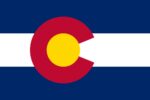
The U.S. medical field is highly competitive, and it can be difficult for you to get your foot in the door as a prospective med student if you don’t have exactly what medical schools are looking for. However, if you are interested in expanding your options beyond U.S. medical schools, there is plenty to explore!
If you want to practice medicine and have the passion, capability, and commitment to pursue higher education in medicine but are having difficulty getting accepted into U.S.-based schools, Caribbean-based schools can be a good option to consider.
Caribbean medical schools are often less competitive than most U.S. medical programs, providing opportunities for medical students who struggle to secure spots in U.S. institutions to still pursue their dream of becoming a doctor.
Many U.S. students consider a Caribbean MD program if their MCAT scores or GPA are below average. Plus, tropical climates and rolling admissions policies certainly don’t hurt.
That said, it’s best to view Caribbean medical schools as a strong backup option. If you’re able to get accepted to a U.S. school, that’s the most recommended path to take.
In this article, we identify the best Caribbean medical schools, which are those that:
- Are accredited medical schools that qualify for the U.S. residency match.
- Offer applications through AAMC with no extra certifications required.
- Offer an MD degree, not an MBBS.
- Have positive reputations, both with MedSchoolCoach students and throughout the medical community.
We also answer the questions our students ask most often about moving to the Caribbean for med school.
Double your chances of acceptance by working with MedSchoolCoach. We help you strategically craft your med school application to showcase your experiences, develop your unique voice, and stand out to admissions committees.
1. St. George’s University (SGU)
- Country/territory: Grenada
- Degree offered: MD
- Average GPA: 3.3
- Average MCAT score: 498
- Tuition: $32,937-$48,949/term (10 terms including clerkships)
- Accreditation status: Accredited for U.S. residency program eligibility
St. George’s University, established in 1976, is a leading Caribbean medical college. Known for its rigorous academic programs, it attracts students from around the world.
The university’s state-of-the-art facilities, experienced faculty, and strong emphasis on clinical training for competitive specialties contribute to its reputation as the best international medical school in the Caribbean.
SGU graduates have a 94% Match rate, an 84% first-time USMLE Step 1 pass rate, and a 90% first-time USMLE Step 2 pass rate. Plus, SGU students qualify for U.S. financial aid, which is rare for other Caribbean medical programs.
2. Saba University School of Medicine
- Country/territory: The Bottom, Caribbean Netherlands
- Degree offered: MD
- Average GPA: 2.7
- Average MCAT score: 510
- Tuition: $19,650-$24,020/term (10 terms including clerkships)
- Accreditation status: Accredited for U.S. residency program eligibility
Saba University School of Medicine, established in 1992, offers a comprehensive medical education designed as an alternative to traditional U.S. institutions. They boast a 99% first-time USMLE Step 1 and Step 2 pass rate and a 97% Match rate for U.S. and Canadian residency students.
This medical program is also one of the few non-U.S. med schools that still qualifies for U.S. and Canadian financial aid.
3. Ross University School of Medicine
- Country/territory: Barbados
- Degree offered: MD
- Average GPA: 3.22
- Average MCAT score: 493
- Tuition: $24,215-$28,614/semester (11 semesters including clerkships)
- Accreditation status: Accredited for U.S. residency program eligibility
Ross University was founded in 1978 and is renowned for its global reputation and extensive network of clinical sites. They have strong affiliations with U.S. hospitals, making it a preferred choice for many aspiring physicians.
This medical program emphasizes hands-on learning, with first-year med students often getting their first clinical experience within the first month of attendance. Ross has an 86.8% first-time USMLE Step 1 pass rate and a 98% residency Match record.
4. American University of the Caribbean School of Medicine
- Country/territory: St. Maarten
- Degree offered: MD
- Average GPA: 3.21
- Average MCAT score: 492
- Tuition: $22,431-$29,342/semester (9 terms including clerkships)
- Accreditation status: Accredited for U.S. residency program eligibility
Established in 1978, the American University of the Caribbean School of Medicine (AUC-Med) has a very respectable 95% first-time residency attainment rate for graduates. They also boast an 84% pass rate for first-time USMLE Step 1 attempts.
AUC prioritizes partnerships with teaching hospitals throughout the world. They also offer a second location in the UK, offering students the chance to study in several countries over the course of their medical education.
Some AUC students may qualify for financial aid in the U.S. and Canada.
5. American University of Antigua
- Country/territory: Antigua
- Degree offered: MD
- Average GPA: 3.0
- Average MCAT score: Unknown
- Tuition: $28,500-$32,000/semester (9 semesters including clerkships)
- Accreditation status: Accredited for U.S. residency program eligibility
Founded in 2004, the American University of Antigua offers many scholarship and grant options to incoming students. It’s affiliated with more than 40 teaching hospitals throughout the U.S., Canada, the UK, and India.
AUA has a remarkably cutting-edge facility so students can learn techniques on the forefront of modern medicine. Their USMLE Step 1 pass rate is 98% for first-time test takers, and they boast a 94% first-time residency Match rate.
6. Medical University of the Americas
- Country/territory: St. Kitts and Nevis
- Degree offered: MD
- Average GPA: 3.0
- Average MCAT score: Unknown
- Tuition: $13,000-$15,000/semester (10 semesters including clerkships)
- Accreditation status: Accredited for U.S. residency program eligibility
The Medical University of the Americas was founded in 1998. Its 98% Match rate, 85% first-time USMLE Step 1 pass rate, and small class sizes (7:1 student-to-faculty ratio) make it an attractive option for a Caribbean college of medicine.
MUA is the most affordable on the MedSchoolCoach list, at less than $20,000 per semester. It offers multiple BS/MD programs for high school students interested in pursuing a medical career or those with associate degrees.
Find out your odds of getting into your preferred medical program with our Med School Chance Predictor. It takes into account the top factors med schools have prioritized over time, based on real admissions trends.
Benefits of Attending a Caribbean Medical School
Attending medical school in the Caribbean comes with some real benefits beyond the tropical views.
Many Caribbean institutions offer a lower cost of tuition. Plus, if you choose to attend an accredited offshore program, you can access the same federal financial aid options available to U.S. medical students.
This means you could end up taking out fewer student loans than if you were attending a U.S. med program.
Admissions requirements are also more flexible and less demanding. Average GPA and MCAT scores are not expected to be as high as those of most U.S. medical schools. This can make the path to pursuing a career in medicine more accessible for certain pre-med students.
Drawbacks to Consider
While there are positives to attending Caribbean med schools, there are also some drawbacks to consider.
One of the biggest challenges students from Caribbean programs can face is difficulty securing residencies. This happens not only because of GPA and MCAT scores being less competitive, but also because many clinical rotations take place at community hospitals instead of in academic medical centers.
Other drawbacks to consider include:
- It’s generally harder to match into competitive specialties. While some students do secure spots in a surgical specialty or other competitive residency, those cases are often the exception, not the rule. This stems from having limited experience at academic medical centers during clinical rotations.
- While going abroad for medical school sounds dreamy, it can prove to be very isolating for some students.
- You may need to meet extra prerequisites, like submitting additional documents or passing exams required for international students.
- With the indefinite suspension of the USMLE Step 2 CS, which helped international students to prove their clinical knowledge and skills, there’s increased pressure to perform well on other exams.
Prioritize Accreditation and Reputation
When considering a Caribbean medical school, it’s essential to prioritize accreditation and reputation.
The most reputable schools are often referred to as “offshore” programs. This means that, while they are located in the Caribbean, they are designed to meet the same standards as Canadian and U.S. medical schools.
Graduates from accredited offshore programs are typically eligible for U.S. residency matching and medical licensure after earning their MD.
Be cautious, though. Not all Caribbean medical colleges award MD or DO degrees. Some offer an MBBS, which doesn’t meet the requirements to become a licensed physician in the U.S. While MMBS degrees are offered at other international institutions, MD degrees are necessary for residency placement in the U.S.
Unfortunately, many Caribbean medical schools have earned a poor reputation due to their less competitive application process. Lower average GPAs and MCAT scores among applicants can lead residency programs to question whether a student is truly ready for a career in the rigorous healthcare field.
Plus, while most U.S. medical students graduate successfully and attain U.S. physician status, Caribbean grads tend to encounter more difficulties with USMLE pass rates and securing residency positions.
This is why it’s critical to know that the institution and medical program you choose in the Caribbean has a good reputation regarding residency placement rates, USMLE pass rates, and student support.
FAQs
Yes, many Caribbean medical schools are legitimate and accredited medical programs that provide a pathway for individuals to pursue medical education.
However, you should carefully research and choose accredited schools that will allow you to succeed in the NRMP Match and practice in the U.S. The quality of education and recognition can vary among institutions in the Caribbean.
An MBBS (Bachelor of Medicine-Bachelor of Surgery) is a medical degree for physicians offered in commonwealth countries, such as those in the Caribbean, Great Britain, and India. The MD (Doctor of Medicine) and DO (Doctor of Osteopathy) degrees are the U.S. medical degrees required to become a licensed doctor.
Students in commonwealth countries can pursue an MBBS as a single program, rather than getting a traditional Bachelor’s degree or going to a school of medicine (like in the U.S.). MBBS degrees take 5-6 years of schooling.
In the United States, an MBBS degree is not technically equivalent to an MD or DO degree. Physicians with this degree must complete additional testing and (sometimes) coursework to qualify for the Residency Match or become fully licensed.
An MD or DO degree typically takes around 8 years to complete, including undergraduate pre-med studies. Doctors in the U.S. must complete a Bachelor’s degree and prerequisite courses before getting accepted to and attending medical school.
Most Caribbean medical schools accept international students. All international students must meet the prerequisites for their chosen school in order to be considered for acceptance.
Regional Caribbean medical school graduates typically score lower on USMLE Step 1 and Step 2 exams than U.S. medical school graduates.
Although multiple accrediting bodies can accredit Caribbean schools, it’s important to know that graduates of international medical schools accredited by agencies with WFME Recognition Status will have an easier time pursuing medical education in the U.S.
Students who attend schools without this status will still be eligible for ECFMG certification, but they will have to pursue this certification independently.
For Caribbean medical schools, three accrediting agencies have WFME Recognition Status: the Accreditation Commission on Colleges of Medicine (ACCM), the Caribbean Accreditation Authority for Education in Medicine and Other Health Professions (CAAM-HP), and the Accreditation Organisation of the Netherlands and Flanders.
Both osteopathic (DO-granting medical programs) and offshore Caribbean medical schools typically accept students with lower MCAT scores and GPAs than most MD programs in the U.S.
However, some of the easiest medical schools to get into also include MD schools. Rather than focusing on DO schools or Caribbean schools in particular, use the MedSchoolExplorer by MedSchoolCoach to learn what programs best fit your unique profile.
No Matter Where You Go, We Can Help You Get There
Every med student’s journey looks different. Not getting acceptance into a U.S. med school doesn’t have to be the end of the road; there are additional pathways and options to consider, and MedSchoolCoach is here to help you decide which one is best for you!
This could mean taking time to strengthen your application and reapply to med school or considering a Caribbean medical school.
Meet with our enrollment team at MedSchoolCoach to learn how we can help you ace your medical school application. We can give you personalized guidance to make sure you find the best medical program that matches your personal goals and metrics.

Sahil Mehta MD
Dr. Mehta is the founder of MedSchoolCoach and has guided thousands of successful medical school applicants. He is also a practicing physician in Boston where he specializes in vascular and interventional radiology.





